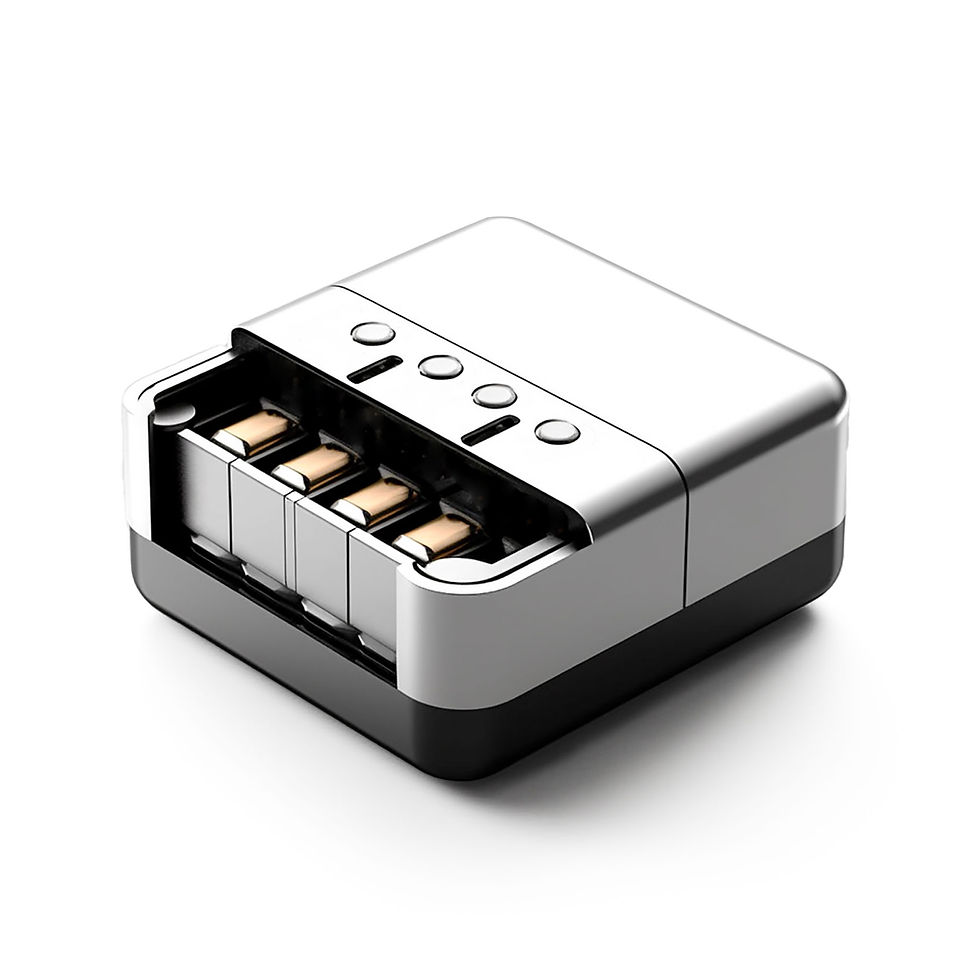Strategies for Safeguarding Your smart home battery backup During Power Outages
- Architect Dennis

- May 19, 2025
- 4 min read

In a world where smart technology reshapes our daily lives, the importance of keeping these systems running during power outages cannot be overstated. An unexpected blackout can disrupt your home, leaving everything from security systems to smart appliances inoperable. However, there are effective strategies you can use to protect your smart home against these disruptions.

Invest in a Reliable UPS
A Uninterruptible Power Supply (UPS) is essential for any connected home. This device offers emergency power, allowing key devices like security systems, Wi-Fi routers, and smart hubs to function even during outages. When choosing a UPS, it's crucial to look at its capacity and determine which devices you want to support. For example, a UPS with a capacity of 1,000 VA can typically keep essential devices running for a few hours, depending on the load. By investing in a quality UPS, you can significantly reduce disruption to your smart home’s operations. smart home battery backup

Utilize Backup Generators
For longer outages, a backup generator is a smart choice. Both portable and standby generators can provide power to a large portion of your home, allowing essential appliances to keep running. Models featuring automatic transfer switches can detect outages and start up without any manual effort. This ensures that your smart systems remain powered and connected. For instance, a 5,000-watt generator can keep your refrigerator, HVAC system, and several other devices operational, giving you peace of mind even when the lights go out.

Implement smart home battery backup Automation
Your smart home can be programmed to respond automatically to power loss. For instance, you could have smart lights flash or receive alerts on your smartphone to notify you of a power outage. With smart plugs, you can ensure that devices that need to be powered down safely can do so during an outage, and just as importantly, power back on afterward. Automation not only boosts your home's security but also makes it easier to manage during emergencies. For example, a smart home system that sends a notification during a power outage can allow you to take immediate action rather than waiting until the lights come back on.

Consider Battery-Powered Devices
Incorporating battery-powered smart devices can increase your home’s resilience during outages. For example, smart locks, smoke detectors, and security cameras equipped with backup batteries can continue functioning even when the power goes out. Regularly check battery life and replace batteries as necessary to ensure these crucial safety devices remain operational when you need them most. Statistics show that homes with properly functioning smoke detectors can reduce the risk of fire death by 50%.

Create an Emergency Plan
Developing an emergency plan is essential for every household. Identify the most critical sections of your smart home and prioritize backup solutions for these areas. Make sure all family members are aware of the plan, including instructions on operating backup devices and checking battery levels. Consider running practice drills so everyone knows what to do during a power outage. This kind of preparation enhances safety and ensures that everyone understands their roles when unexpected events occur.

Regular Maintenance Checks
Performing regular maintenance on your smart home systems can help prevent problems during power outages. Make it a habit to test your backup systems, such as the UPS and generators, regularly. Keep the firmware of all smart devices updated to enhance reliability and compatibility. A well-maintained system is likely to function better during outages compared to a neglected one. For example, simple maintenance checks can greatly increase the lifespan of your UPS.

Final Thoughts
Safeguarding your smart home against power outages takes a comprehensive approach. By investing in systems like UPS and generators, using battery-powered devices, automating responses, and creating a solid emergency plan, you can better protect your technology during power failures. These steps will not only boost your home’s security but also provide peace of mind in an increasingly connected world.
Being proactive and prepared is key. Enjoy the benefits of a smart home without the worry of power interruptions. Your goal should be to maintain comfort, safety, and connectivity despite any challenges that may come your way.
Head over to our Resource Section for more useful Architectural references.





Comments